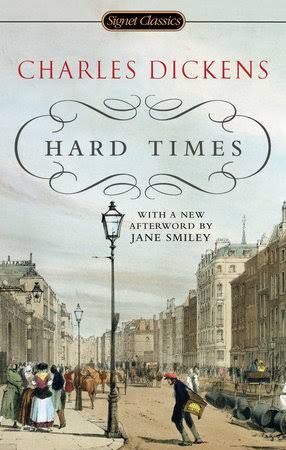Hard Times By Charles Dickens (Part-1)
Jun 20, 2019 • 73 views

Introduction by Mukesh Williams
• F. R.Leavis, in 'The Great Traditions' saw 'Hard Times' as Dickens’ masterpiece, "a moral fable" that perfectly embodied the writer's moral vision. Leavis found only in Hard Times a "sustained and complete seriousness" that could challenge an "adult mind". He praised its tight story, clear symbolism, commendable values, its consummate dialogue, natural style and convincing denouncement.
• The ill effects of Victorian Utilitarianism can be seen here, embodied in Thomas Gradgrind and Josiah Bounderby and relentlessly pursued by both. The intellectual and practical utilitarianism of Gradgrind and the coercive egotism of Bounderby destroy creativity, spontaneity, vitality and human warmth that make life worth living.
• In the novel, Dickens portrays the demeaning and often dehumanizing aspects of industrialization in urban Victorian society but somehow fails to infuse life in the environment he depicts.
• Jenni Calder, criticizing the two dimensionalities of the novel sees a "lack of detail in the environment" and an "absence of the life" in the laboring people of Coketown.
• R. C. Churchill commenting on the psychological realism in Dickens believes that Gradgrind apart from Pip in Great Expectations is drawn 'true to life'. He cautions us that "true of life" in Dickens implies a poetic truth mediated by his comic imagination, not some kind of stark realism that becomes prosaic in manifestation. Incidentally just when realism increases in the novel it brings about a "corresponding decrease in the comic fantasy that we usually associate with him".
• It would be naive to believe that Dickens was against the products of industrialization or the institutions of Victorian society that gave rise to it.
• Dickens either presents 'amusing eccentrics' or a "Sentimentalized middle-class universe". Therefore in Hard Times we get a feeling that Coketown is sad and brooding and not its inhabitants.
• The title of the novel suggests not so much a time of economic want but as Marxist critic David Craig says that "bondage to routine and calculation" that industrial culture perpetuates.
• Dickens like Gradgrind living in a period of economic and social hard times had no time for idle fancy.
• Dickens, does not reject Bounderby’s utilitarian method and philosophy but dilutes it into a compassionate world view of Louisa Gradgrind who wants to "beautify" the lives of her "humbler fellow-creatures " with aesthetic sense and understanding.
• Dickens perhaps believed that Union leaders were frauds like Gruffshaw and Slackbridge and secondly unions violated liberty of non-union workers.
• Socialists saw the machine as a symbol of oppression when controlled by unimaginative and profiteering capitalists.
• Cecilia Jupe and Louisa are intensely serious characters suffering their way through the novel rising to their true potential in a scene or two.
• G.B. Shaw saw Louisa as an "inspired prophetess" aware of her impending tragedy and unmasking Mr. Gradgrind's "blind conceit".
• Social criticism takes a serious note of Dickens’ presentation of the trade union leader, Slackbridge who is understood from a middle-class perspective and as such unrealistically portrayed.
• Dickens seems to be both a victim and a chronicler of such a contradictory response to utilitarianism in Hard Times, both in his treatment of the theme of education and trade unionism.
